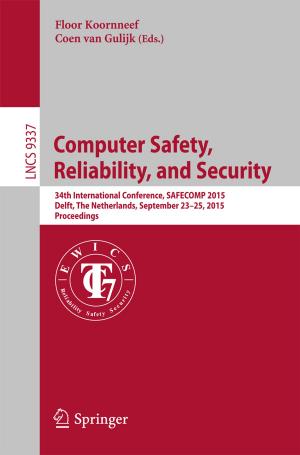Verifying Calculations - Forty Years On
An Overview of Classical Verification Techniques for FEM Simulations
Nonfiction, Science & Nature, Technology, Engineering, Mechanical, Computers| Author: | ISBN: | 9783319205533 | |
| Publisher: | Springer International Publishing | Publication: | August 5, 2015 |
| Imprint: | Springer | Language: | English |
| Author: | |
| ISBN: | 9783319205533 |
| Publisher: | Springer International Publishing |
| Publication: | August 5, 2015 |
| Imprint: | Springer |
| Language: | English |
This work provides an overview of a posteriori error assessment techniques for Finite Element (FE) based numerical models. These tools aim at estimating and controlling the discretization error in scientific computational models, being the basis for the numerical verification of the FE solutions. The text discusses the capabilities and limitations of classical methods to build error estimates which can be used to control the quality of numerical simulations and drive adaptive algorithms, with a focus on Computational Mechanics engineering applications. Fundamentals principles of residual methods, smoothing (recovery) methods, and constitutive relation error (duality based) methods are thus addressed along the manuscript. Attention is paid to recent advances and forthcoming research challenges on related topics. The book constitutes a useful guide for students, researchers, or engineers wishing to acquire insights into state-of-the-art techniques for numerical verification.
This work provides an overview of a posteriori error assessment techniques for Finite Element (FE) based numerical models. These tools aim at estimating and controlling the discretization error in scientific computational models, being the basis for the numerical verification of the FE solutions. The text discusses the capabilities and limitations of classical methods to build error estimates which can be used to control the quality of numerical simulations and drive adaptive algorithms, with a focus on Computational Mechanics engineering applications. Fundamentals principles of residual methods, smoothing (recovery) methods, and constitutive relation error (duality based) methods are thus addressed along the manuscript. Attention is paid to recent advances and forthcoming research challenges on related topics. The book constitutes a useful guide for students, researchers, or engineers wishing to acquire insights into state-of-the-art techniques for numerical verification.















